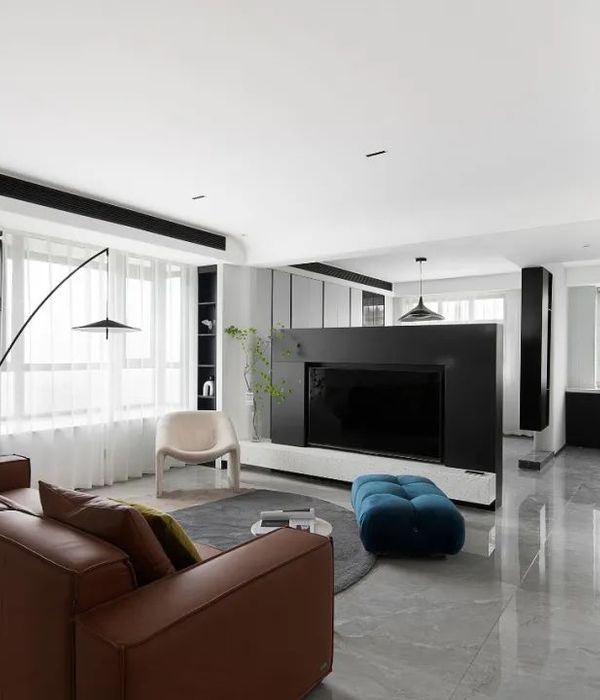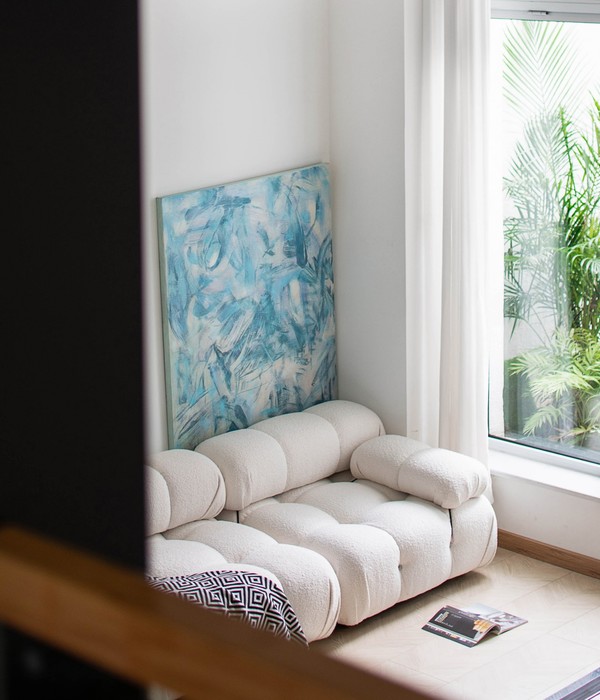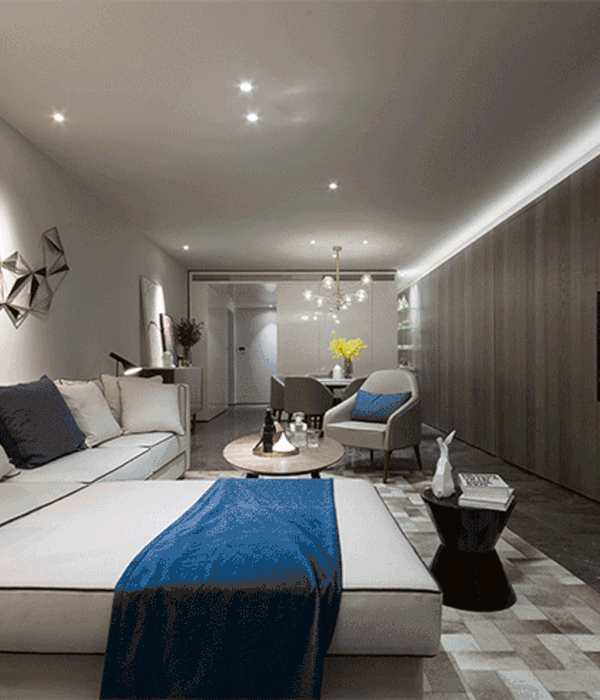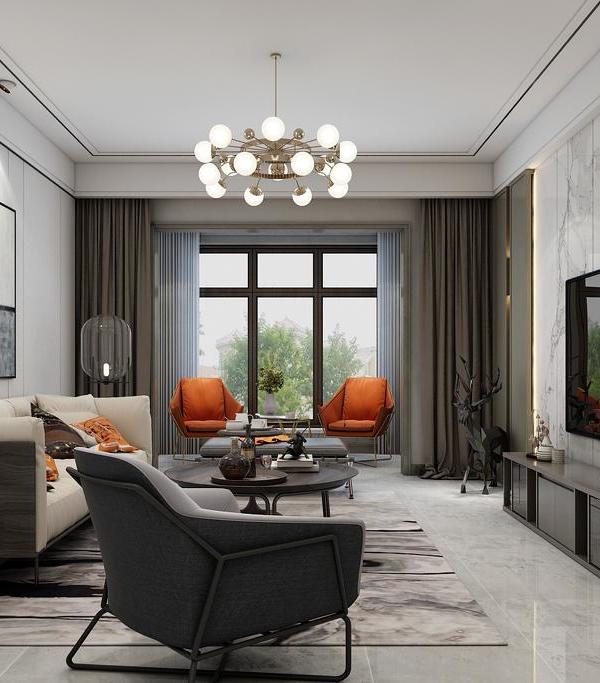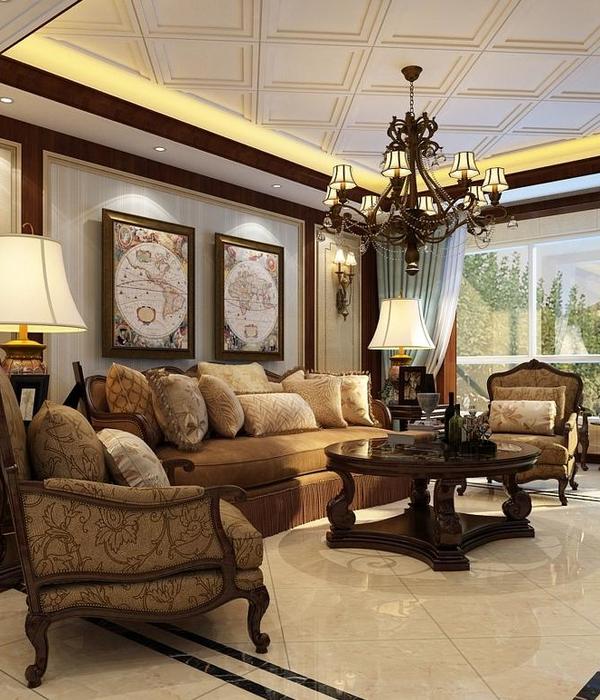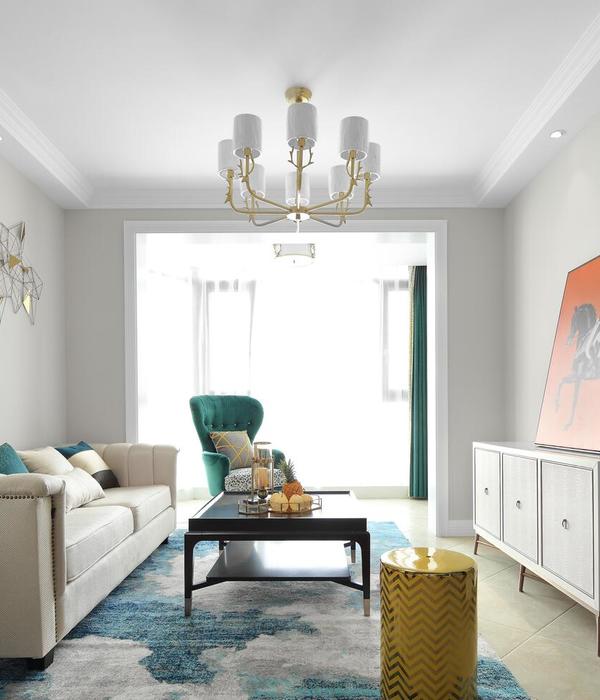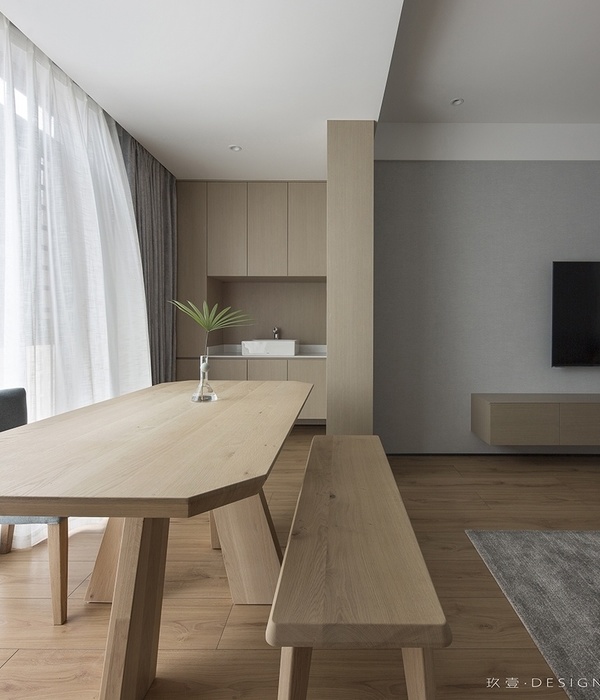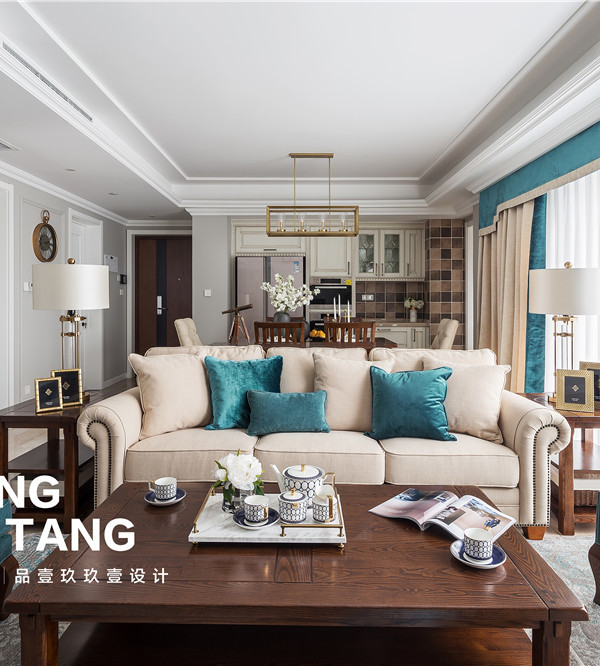来自
Pedro Quintela (Facebook)
场地
建筑师Pedro Quintela在葡萄牙风景如画的辛特拉,从一个废弃多年,墙面都不完整的房屋上重建起一座宝石般的家。这里位于欧洲大陆最西端,拥有群山和悬崖,还有叹为观止的大西洋海景。著名的诗人Luís Vaz de Camões曾形容这里是陆地之终点,海洋之起点的人类平和之地。
The Place
This intervention is located in “Sintra”, in the Village of “Azóia”, the westernmost community in mainland Europe. It is a privileged area, located between mountains and imposing cliffs overlooking the Atlantic Ocean, where the magnificent Cape “Cabo da Roca” arises. The area is described by the acclaimed poet “Luís Vaz de Camões” as “where land ends and sea begins” and it was elected, by Peace Blossom, as “an inspirational place for Humanity to build a World in Peace and Harmony”.
At the top of the picturesque street “Rua do Bêco” lays the house. When it was first seen, it was indistinguishable from an old abandoned tightly packed stone wall, physically and visually impenetrable, entirely taken over by dense brambles and years of neglect.
▼ (left 左 ) after 改建后 (right 右) before 改建前
将场地视作业主,建立“场所精神”的住宅
建筑师从这样的废墟上起步,将场地视作业主,与之交谈,小心翼翼的聆听并对其轻语,最终建立起一座尊重场地,具有“场所精神”的住宅。
The Intention
Moved by the desire to give renewed use and meanings to old things valuing them, the architect believes that he has, in his most careful look, the gift of transforming what he touches. This ruin confirms this recovery / reconstruction sense.
He believes that a structured evolution does not rely in the radical and, sometimes egocentric, change proposed, but in a humble and wise holistic transformation, which respects the site’s full history.
Concept
This concept perceives Architecture as an evolution process, which as in nature, is interconnected in three main phases: Adaptation (immediate responses of the place); Transformation (reflection) and Crystallization (Creation). By this way it is intended a a consistent intervention, from which arises a harmonious place, not only with its context , but also with the intentions / claims of those who have created it. Only going through this process, can he consider the work to be authentic, respecting “The Spirit of the Place”.
The Work Method
The architect’s work method is, as he assures us, intuitive. His real clients are the sites themselves. It is with them that he spends most of his time, “hearing them” carefully. They “speak softly” to him and tell him how they want to be rebuilt. The Architect takes on the role of “spokesman”, thus assumes as core onus knowing how to “listen” and to create in the unique places, what it may, or not, request.
外观
迫于场地周边房屋的限制,这座房屋主要朝向西面,但也因此避开了北风的肆虐和暴雨的侵袭,同时获得了观赏如诗如画的夕阳与欣赏浩瀚大西洋的视野。场地的面积促使建筑师往上发展,在屋顶也创造出了一人的室外空间。
The exterior
The harsh climate of the site and the proximity of the surrounding houses compelled opening the house towards the West. Beyond providing protection from the strong winds and rains from the North, this orientation granted privacy regarding surrounding houses. It provides as well a wonderful view of the picturesque street “Rua do Bêco” and the Atlantic Ocean, whose amazing sunsets can be seen over a very clear horizon line.
The limited area of the lot heightened the architect’s creativity as he was prized to create pleasant outdoor spaces on all floors, surprising and delighting those who enjoy this home today.
隐私与充足的自然光在一层,进入房间,可以发现虽然没有几扇窗,但是自然光却十分充沛。建筑师精心的在房屋几处设置天窗,让自然光落下,照亮流线型的墙壁和圆润的室内空间,一切都是那么的自然和舒适。天窗是天空的相框。
Privacy and lots of natural light
The opening point of spans is revealed as you get to know the house. Upon entering, although no window can be seen, one feels the delightfully magic presence of indirect natural light flowing through the spaces. Occasional gashes and strategically placed skylights allow the light to sweep the walls, harmonizing the environment through gradients of light and shadow resulting from organic shapes of walls and their smooth finishes with no right angles, “that invite you to come in.” These openings ensure the visual connection with the exterior. They act as picture frames of a constantly changing sky.
照明设计
关于照明设计,建筑师认为光污染随处可见,这里指的不是对身体和视觉造成影响的光污染,而是对感官的污染。因此建筑师将光源隐藏在花槽,壁龛,书架,楼梯的椽子中,让光均匀的付出。此外设计师还积极利用镜子反射光和增加空间观感。
Lighting
The architect considers light as a common source of pollution. It is not physical or visual pollution, but sensorial pollution, which calls for his additional responsiveness. Light in this house emerges in planters, niches, shelves, stairs, and is usually hidden behind rafters, cascading so evenly that they seem to heat the space.
Glass is also widely used as physical, although not visual, separation and mirrors games enhance light reflections and seem to increase the amplitude of the spaces as an act of magic.
材料这座建筑的材料都被直白的呈现,建筑师认为,建筑之美如同人之美,在于简单。建筑师根据自己对材料的了解对材料物尽其用,尽可能的发挥出材料最大的潜能。克制而极简的使用材料,利用粗糙本真的硬质材料创造出光滑柔顺的形式。
The materials
The architect believes that the simplicity of the materials highlights the essence of his architecture, which he seeks genuine and not “masked”. He believes that the beauty of the architecture, such as the beauty of the human being, is in its simplicity.
Knowledge and familiarity with the material expands its capabilities and constructive applications. A material used to his fullest potential can bring us endless ways to use it, sometimes deeming the use of other materials as unnecessary, enabling a greater harmony and minimizing construction costs. In this house, we can see materials, originally coarse and hard materials, recreated in smooth and supple forms.
Inspired by the nearby beaches, the architect devised the interior and exterior finish coating from the plaster in earth color. He uses the natural color of sand mixed with the, unusually used, white cement and lastly adds a bath of clear lacquer, which provides waterproofing and a smooth, satin feel to the house. The soft, light and warm color required was based on the reminiscent color of the original stone houses. It merges well with the other three elements as present in this place: the sky, the sea and the Fire.
装饰
由于建筑用途是住宅,因此装饰必不可少,建筑师在整体概念设计时便将装饰要素考虑进去。正因为最开始的设计有考虑到装饰,所以最终呈现是装饰与建筑融为一体,极有生命力。
The decoration
As the house was developed, so did the decor. The holistic concept the architect believes in also takes these mergers into account. Understanding what the spaces of the house are asking for was the last step to take before completion.
Strategically placed objects belong where they are, conveying the spatial understanding developed from the beginning of the work. Ultimately, a new life redesigned and transformed to belong to this house as she returned to belong to the place.
最终建筑师创造出一个为场地而生,拥有风景,十分舒适宜居的家。
Conclusion
Through his holistic concept, the architect worked the disorganized energies, using them, assimilating them and organizing them to form a specific structure with identity, creating beauty, truth and value.
The intervention sought to go further than building a home with nostalgic memories of the past, further than standard rash site assumptions. The aim was to understand the place through its intangible qualities, its myths, its legends, its policies and its humanity. The challenge for the architect was to infuse this intervention with the morphology of the place.
Characteristics
Interior Area: 264 m2
Total Land Area: 233 m2
Starting date: 2012
Work duration:2 years
Location: Rua do Bêco, Azóia. Sintra, Portugal.
Architect: Pedro Quintela
Work in charge:Pedro Quintela
Photography:Giorgio Bordino
Text:Carla Silva
Facebook Page:Pedro Quintela Studio
MORE:Pedro Quintela (Facebook)
更多请至:
{{item.text_origin}}


